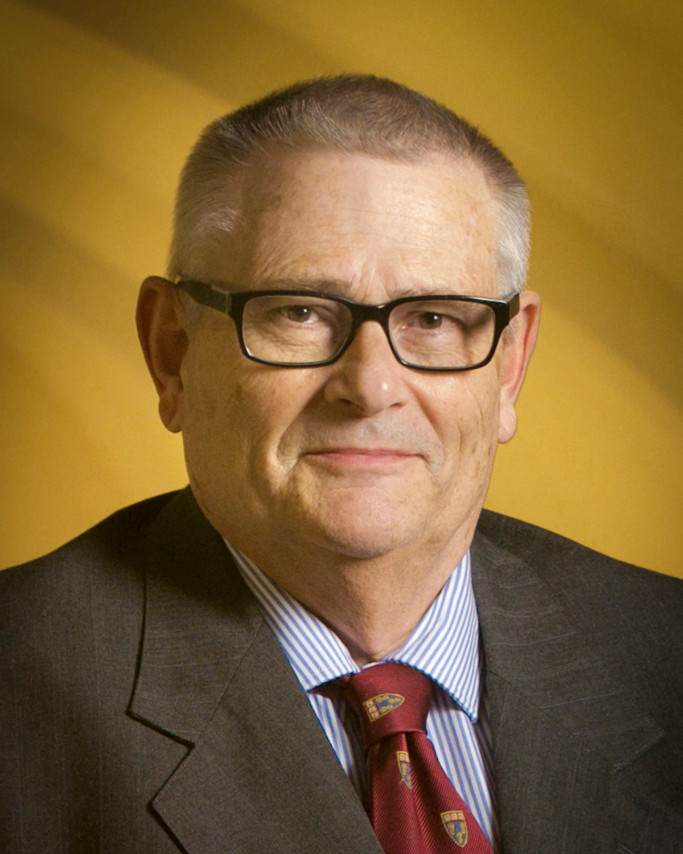A Life So Forcefully Lived
Editor’s Note: This month we are celebrating both the twentieth anniversary of the Martin Marty Center and the ninetieth birthday of Martin Marty
Editor’s Note: This month we are celebrating both the twentieth anniversary of the Martin Marty Center and the ninetieth birthday of Martin Marty. Marty would say that our focus ought to be on the Center, not on him, and for the most part it is. However, Marty has also said that part of the mission of Sightings is to help “interpret the interpreters” of religion in public life, and for the past half-century and more there has been no more notable interpreter of religion in American public life than Martin Marty. So we took the occasion to put together a series of reflections on Marty’s unique contributions to the public understanding of religion from authors who are themselves leading interpreters—whether in academia or in popular media. Here is the fifth, and final, installment.
 When Brett invited me to offer a few thoughts about Marty’s legacy as an interpreter of American public life, my first instinct was to wonder, what could I possibly say in 750 words that comes close to capturing the magnitude of his achievement?
When Brett invited me to offer a few thoughts about Marty’s legacy as an interpreter of American public life, my first instinct was to wonder, what could I possibly say in 750 words that comes close to capturing the magnitude of his achievement?
After all, we are talking about more than sixty books, hundreds of scholarly articles, and thousands (literally, thousands) of occasional pieces, as well as an army of graduate students, boatloads of awards and honorary degrees, and countless sermons and public speeches. His work ranges across multiple genres, including art, music, biography, high theology, popular culture, old-fashioned church history, and even some sociology. And all of it is cast in clear, crisp prose, mercifully free of jargon, consistently designed to communicate, not preen. Marty’s erudition is like old money: always present but tastefully inconspicuous.
Well, maybe it is possible to intimate the magnitude of that accomplishment with a few well-chosen adjectives, beginning with undergraduates’ favorite, awesome. Throw in landmark, breathtaking, mind-boggling, and one begins to get the idea.
Tighten the focus. In the fall of 2013 Marty spoke at a conference at Wheaton College (Illinois) about the legacy of Billy Graham. He began by saying that on the Mount Rushmore of American religious history, four figures hold an undisputed place: Jonathan Edwards, Martin Luther King, and Billy Graham. The fourth, Marty quipped, with a twinkle in his eye, he had not decided yet.
I share this anecdote for three reasons. The first is to offer a concrete illustration of Marty’s wit. Irrepressible, spontaneous, and truly funny. The kind of wit that points to, as Mark Noll said of Marty in another context, a “really big motor up there.”
Second, to note the setting: Wheaton College, widely deemed the center/right command post of mainstream evangelicalism. Marty in contrast is better pegged as a leading mainline Protestant. Speaking at Wheaton portended his ecumenical heart and spirit. Not at the price of compromising his own theological and political principles, generally center/left, but open to honest conversation, receptive to change, and invariably inclined to give his rivals the benefit of the doubt. In a word, Marty showed the kind of humility we all knew was the real deal.
Third, the Wheaton event showed the boldness of Marty’s imagination by linking three figures who on the surface seemed to hold little in common. Though King and Graham were contemporaries, they did not actually have much to say to each other. Throw Edwards into the mix and the conversation probably would have ground down to total silence. But part of Marty’s genius lies in his ability to see the deeper picture, to discern the continuities hiding beneath the patina of the obvious.
Tighten the focus once again. Many years ago I started keeping a little leather notebook in my pocket in order to jot down compelling lines I ran across in my reading or hearing. Scanning those notebooks, I find Marty’s name turning up more often—actually far more often—than any other. Listing his lines would run into hundreds, maybe thousands, of words. But here are a few I have found not only memorable but also useful for helping me organize my thinking and, more important, my life. (The quotes are approximate.)
“Christian history contains two kinds of people: saints and martyrs. The martyrs are the ones who have to live with saints.”
“[He] was not a ‘prophet’ like us tenured professors who can be provocative and then duck.”
“Evangelical Christianity is the religion you get when you get religion.”
“I have seen the future, and it is like the present, only longer.”
“Trust your readers.”
“Every age has a faith crisis. Where in the Gospel of Mark do you see anyone who seems to be catching the point?”
“A central problem facing churches today is not secular humanism but the high rise apartment and long weekend.”
“It’s great to be in a situation where being in the presence of God stuns you a little bit.”
“The only thing worse than the under-examined life is the over-examined life.”
And then there are the stories, and stories, and more stories about Marty’s interactions with students and colleagues and ordinary church folk. Such as the time he asked a graduate student to name three good things the Lord had done for him that day. The student responded, “Father, Son, and Holy Spirit.” Marty shot back, “That’s one.”
These few words about Marty’s legacy focus more on the personal than the academic or journalist sides of him. That choice grows from my conviction that the best apology for Christianity—or any other cause, for that matter—lies not in a shoebox of notecards—skeptics can always come up with a bigger shoebox—but in the power of a life so forcefully lived. By that measure, Marty might well rank as the fourth member of the Mount Rushmore quartet.
Photo Credit: Christian Collins/Flickr (cc)
 Author, Grant Wacker, is the Gilbert T. Rowe Professor Emeritus of Christian History at Duke Divinity School. A leading scholar on the life and evangelism of the late Billy Graham (who died yesterday at the age of ninety-nine), his book One Soul at a Time: A Short Life of Billy Graham is forthcoming later this year from Wm. B. Eerdmans. Author, Grant Wacker, is the Gilbert T. Rowe Professor Emeritus of Christian History at Duke Divinity School. A leading scholar on the life and evangelism of the late Billy Graham (who died yesterday at the age of ninety-nine), his book One Soul at a Time: A Short Life of Billy Graham is forthcoming later this year from Wm. B. Eerdmans. |
Sightings is edited by Brett Colasacco (AB’07, MDiv’10), a PhD candidate in Religion, Literature, and Visual Culture at the University of Chicago Divinity School. Sign up here to receive Sightings via email. You can also follow us on Facebook and Twitter.

